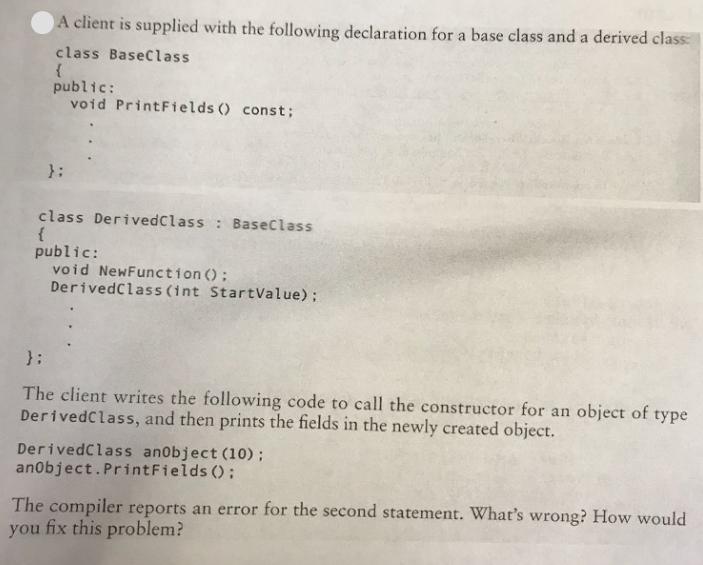Answered step by step
Verified Expert Solution
Question
1 Approved Answer
A client is supplied with the following declaration for a base class and a derived class: class BaseClass { public: void PrintFields () const;

A client is supplied with the following declaration for a base class and a derived class: class BaseClass { public: void PrintFields () const; }: class DerivedClass: BaseClass { public: void NewFunction (); DerivedClass(int StartValue); }; The client writes the following code to call the constructor for an object of type DerivedClass, and then prints the fields in the newly created object. DerivedClass anObject (10); anobject.PrintFields (): The compiler reports an error for the second statement. What's wrong? How would you fix this problem?
Step by Step Solution
★★★★★
3.41 Rating (154 Votes )
There are 3 Steps involved in it
Step: 1
The error occurs because the PrintFields member function is not declared in the DerivedClass class To fix this you need to declare the PrintFields function in the DerivedClass class Here is the correc...
Get Instant Access to Expert-Tailored Solutions
See step-by-step solutions with expert insights and AI powered tools for academic success
Step: 2

Step: 3

Ace Your Homework with AI
Get the answers you need in no time with our AI-driven, step-by-step assistance
Get Started


